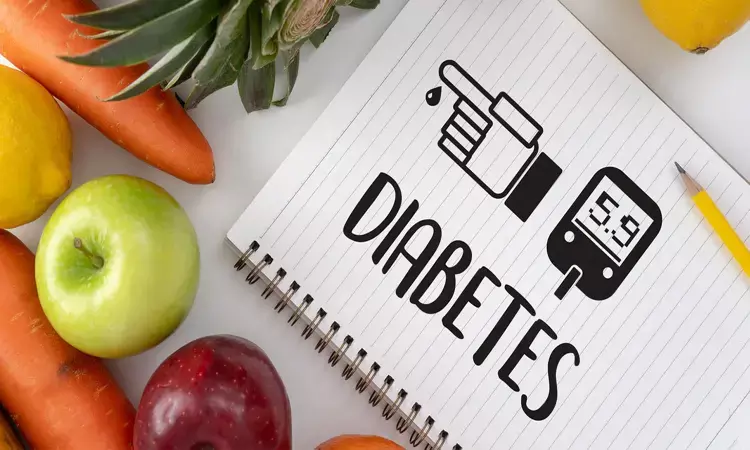- Home
- Medical news & Guidelines
- Anesthesiology
- Cardiology and CTVS
- Critical Care
- Dentistry
- Dermatology
- Diabetes and Endocrinology
- ENT
- Gastroenterology
- Medicine
- Nephrology
- Neurology
- Obstretics-Gynaecology
- Oncology
- Ophthalmology
- Orthopaedics
- Pediatrics-Neonatology
- Psychiatry
- Pulmonology
- Radiology
- Surgery
- Urology
- Laboratory Medicine
- Diet
- Nursing
- Paramedical
- Physiotherapy
- Health news
- Fact Check
- Bone Health Fact Check
- Brain Health Fact Check
- Cancer Related Fact Check
- Child Care Fact Check
- Dental and oral health fact check
- Diabetes and metabolic health fact check
- Diet and Nutrition Fact Check
- Eye and ENT Care Fact Check
- Fitness fact check
- Gut health fact check
- Heart health fact check
- Kidney health fact check
- Medical education fact check
- Men's health fact check
- Respiratory fact check
- Skin and hair care fact check
- Vaccine and Immunization fact check
- Women's health fact check
- AYUSH
- State News
- Andaman and Nicobar Islands
- Andhra Pradesh
- Arunachal Pradesh
- Assam
- Bihar
- Chandigarh
- Chattisgarh
- Dadra and Nagar Haveli
- Daman and Diu
- Delhi
- Goa
- Gujarat
- Haryana
- Himachal Pradesh
- Jammu & Kashmir
- Jharkhand
- Karnataka
- Kerala
- Ladakh
- Lakshadweep
- Madhya Pradesh
- Maharashtra
- Manipur
- Meghalaya
- Mizoram
- Nagaland
- Odisha
- Puducherry
- Punjab
- Rajasthan
- Sikkim
- Tamil Nadu
- Telangana
- Tripura
- Uttar Pradesh
- Uttrakhand
- West Bengal
- Medical Education
- Industry
Type 2 diabetes: Semaglutide significantly reduces blood sugar and body weight

Canada: Initiation of semaglutide therapy in type 2 diabetes (T2D) patients naive to GLP-1 RA therapy helped in a significant reduction of body weight and blood sugar levels, according to a recent study. Results of the study are published in the journal Diabetes, Obesity and Metabolism.
Ruth E Brown, LMC Diabetes & Endocrinology, Toronto, Ontario, Canada, and colleagues investigated the short-term clinical outcomes of semaglutide initiation in T2D patients for adequate control of blood sugar in a specialist endocrinology practice in Canada.
This retrospective observational study used data from the Canadian LMC Diabetes Registry. Adults with T2D who were naïve to glucagon‐like peptide‐1 receptor agonist (GLP‐1 RA) therapy, initiated semaglutide therapy as a usual standard of care between February 2018 and February 2019, and maintained semaglutide therapy during follow‐up, were eligible for analysis.
The primary outcome was the mean change in HbA1c at a three to six‐month follow‐up.
Key findings of the study include:
- In the final analytic cohort (n=937), there was a statistically significant reduction in HbA1c (%) of ‐1.03 ± 1.24% and weight of ‐3.9 ± 4.0 kg, with no significant change in self‐reported incidence of hypoglycemia.
- There was a significant reduction in HbA1c and weight regardless of number of co‐therapies or semaglutide dose.
- Adults using the 1.0 mg dose had a significantly greater reduction in HbA1c compared to adults using the 0.25 to 0.5 mg dose (between group difference ‐0.24 ± 0.06%).
- Adults using basal‐bolus therapy required a significantly lower median total daily dose of insulin after adding semaglutide (0.82 U/kg vs 0.93 U/kg).
The study demonstrated that initiation of semaglutide in GLP‐1 RA naive adults with T2D in a real-world clinical practice led to a significant reduction in body weight and HbA1c after three to six months. This was regardless of semaglutide dose or order of semaglutide therapy, with no significant change in the reported incidence of hypoglycemia or episode of sudden and serious fall of blood sugar.
The study, "Semaglutide Once Weekly in Persons with Type 2 Diabetes: Real‐world Analysis of the Canadian LMC Diabetes Registry (SPARE Study)," is published in the journal Diabetes, Obesity and Metabolism.
DOI: https://doi.org/10.1111/dom.14117
Dr Kamal Kant Kohli-MBBS, DTCD- a chest specialist with more than 30 years of practice and a flair for writing clinical articles, Dr Kamal Kant Kohli joined Medical Dialogues as a Chief Editor of Medical News. Besides writing articles, as an editor, he proofreads and verifies all the medical content published on Medical Dialogues including those coming from journals, studies,medical conferences,guidelines etc. Email: drkohli@medicaldialogues.in. Contact no. 011-43720751


